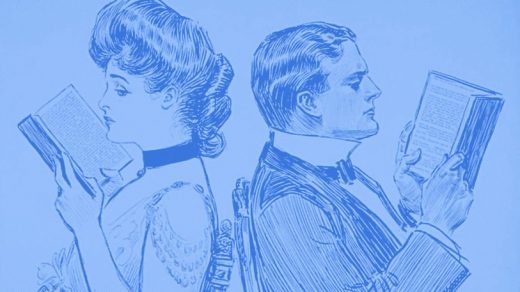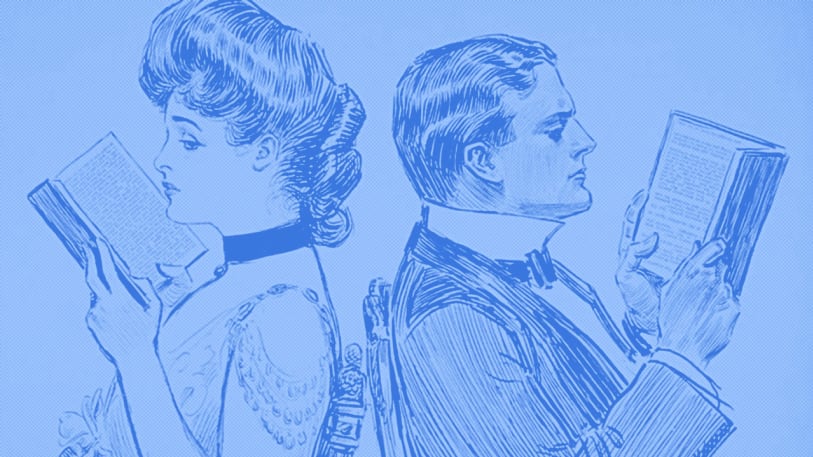Five Ways Reading Fiction Makes You Better At Your Job
It’s no secret that successful people are readers. Reading helps you stay on top of new trends and learn techniques you can use in your career. Bill Gates and Warren Buffett each share their favorite books at the end of the year, and they’re filled with nonfiction titles.
But what about fiction–is it purely entertainment? Michel Morvan, founder and U.S. CEO of the tech company CoSMo, reads a couple chapters of a crime novel every night and says it’s not just for fun: “To run a business, you have to be deeply involved in all the minutiae, from strategy to product to hiring,” he says. “Diving into the story, identifying with the characters, and trying to solve the mystery has two effects on me. First, it is a very efficient way to disconnect from all the problems I face in the business. Second, it immediately unlocks my creativity. My mind has no limits while I’m reading, and it shouldn’t while I’m conducting business.”
Indeed, research has found that reading fiction can help you improve skills that are just as important as the technical knowledge you might gain from nonfiction. Here are five things a novel delivers to your brain:
1. Enhanced Reasoning Skills
Reading fiction can give you insights that help you work beyond logic, says Michael Benveniste, an English professor from the University of Puget Sound. In situations that may be colored by emotion or past experience, it helps you cultivate qualitative reasoning, which is gained from descriptions.
“Fiction offers a space for speculating about the constitutive role that ‘fuzzy’ values like beliefs, norms, and experiences play in social contexts,” he says.
2. Understanding of Complex Problems
People who read fiction gain a broader understanding of others, according to a study from the University of Toronto. “These effects are due partly to the process of engagement in stories, which includes making inferences and becoming emotionally involved, and partly to the contents of fiction, which include complex characters and circumstances that we might not encounter in daily life,” writes Keith Oatley, professor emeritus of cognitive psychology at the University of Toronto.
Oatley compares fiction to a computer simulator for your brain. “Just as computer simulations can help us get to grips with complex problems such as flying a plane or forecasting the weather, so novels, stories, and dramas can help us understand the complexities of social life,” he told The New York Times.
3. Empathy
Imagining a character’s situation can help you become more empathetic toward people in real life. That’s because when you read a story, you connect to personal experiences, according to research done by Raymond Mar, a psychologist at York University in Canada.
In a speech at the American Psychological Association’s annual convention, Mar said we often have thoughts and emotions that are consistent with the storyline. By reflecting on our past social interactions or imagining future interactions, we may gain insight into things that have happened in the past that relate to a character in a story.
“Experiences that we have in our life shape our understanding of the world…and imagined experiences through narrative fiction stories are also likely to shape or change us. But with a caveat–it’s not a magic bullet–it’s an opportunity for change and growth,” said Mar. “Even though fiction is fabricated, it can communicate truths about human psychology and relationships.”
4. Stress Relief
Reading a novel relieves stress better than listening to music, taking a walk or having a cup of tea, according to a study from the University of Sussex. Reading reduced stress levels by 68%, said cognitive neuropsychologist David Lewis. Just six minutes of reading lowered participants’ heart rate and eased tension in the muscles, he found. In fact, reading was able to get subjects’ stress levels lower than before they started.
“Losing yourself in a book is the ultimate relaxation,” Lewis said in an interview with the Telegraph. “It really doesn’t matter what book you read; by losing yourself in a thoroughly engrossing book you can escape from the worries and stresses of the everyday world and spend a while exploring the domain of the author’s imagination.
“This is more than merely a distraction but an active engaging of the imagination as the words on the printed page stimulate your creativity and cause you to enter what is essentially an altered state of consciousness.”
5. Strong Role Models
Novels often have engaging characters whose traits are described in detail. Juliette Wells, associate professor of English at Goucher College in Baltimore, Md., teaches 19th century fiction and says she pulls strength from Jane Austen novels.
“Many of these dynamics map usefully onto the world of work,” she says. “I’ve often found myself silently quoting Elizabeth Bennet of Pride and Prejudice, who declares, ‘my courage always rises at every attempt to intimidate me.’”
(41)














